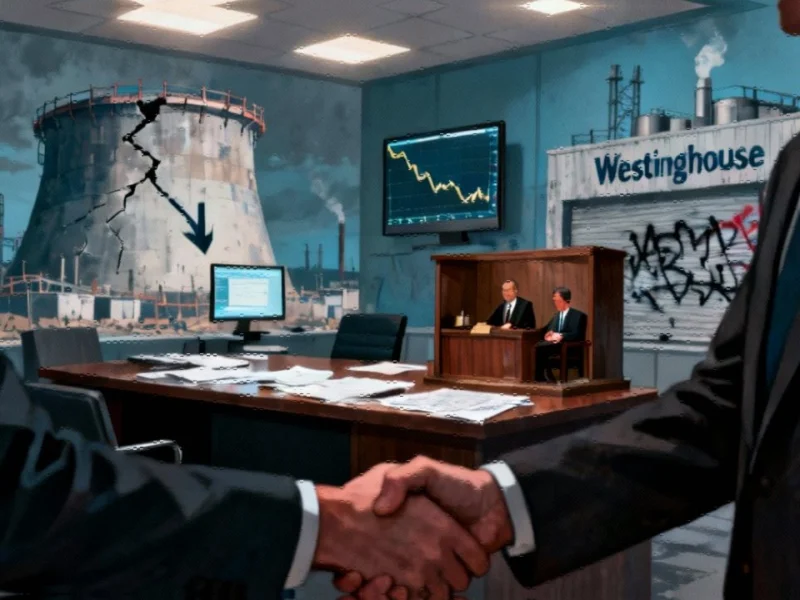Note: Featured image is for illustrative purposes only and does not represent any specific product, service, or entity mentioned in this article.
Major Settlement in Nuclear Project Audit Case
Deloitte has reportedly agreed to pay $34 million to investors who claimed the auditing firm failed to identify problems with one of the country’s largest nuclear power projects before its collapse, according to documents filed in South Carolina federal court. The settlement represents one of the largest securities class action settlements against an auditing firm in the past decade, plaintiff lawyers indicated in their filing.
Background of the Failed Nuclear Project
The case centers around Deloitte’s audit work for Scana, a South Carolina utility that abandoned construction of two nuclear reactors in 2017 after years of problems and cost overruns. According to reports, former shareholders alleged that Deloitte repeatedly signed off on financial statements where Scana management indicated the project would be completed on time, despite mounting evidence to the contrary.
When Scana eventually abandoned the nuclear project, its stock price plummeted, leading to the company’s cut-price sale to a rival utility. The project’s failure also pushed construction company Westinghouse into bankruptcy and resulted in jail time for Scana’s former chief executive, who pleaded guilty to misleading regulators.
Legal Proceedings and Settlement Details
The $34 million settlement requires judicial approval but has been characterized by plaintiff lawyers as an “excellent result” for shareholders, according to court documents. Sources indicate the settlement was reached after extensive litigation and arm’s length negotiations overseen by a respected mediator.
This settlement comes in addition to a $192.5 million settlement from Scana and its officers in 2020, bringing total recoveries for investors to over $226 million. Legal analysts suggest investors face a high bar for implicating auditors in their clients’ securities issues, as audits are designed to provide only “reasonable assurance” rather than absolute guarantees.
Auditing Standards Under Scrutiny
Years of litigation reportedly revealed concerning details about Deloitte‘s audit practices. Court documents indicate the firm dismissed claims from a Scana whistleblower who warned as early as 2015 that the reactors would not be completed in time to qualify for crucial government subsidies.
An internal review conducted by one of Deloitte’s own construction experts after the fact concluded the auditor should have done more to investigate the whistleblower’s claims, according to a six-page handwritten memo cited in legal proceedings. Despite this, Deloitte has maintained it stands behind its work and argued in court that Scana’s financial statements contained adequate warnings about project risks.
Broader Industry Context
The settlement against Deloitte represents one of the largest against an auditing firm in recent years, though it falls short of the record $65 million PwC paid in 2015 over the collapse of brokerage MF Global. The case highlights the ongoing challenges in the auditing profession and comes amid broader industry developments in professional services.
Legal experts suggest the settlement may influence how auditing firms approach similar large-scale infrastructure projects in the future. The resolution occurs alongside other recent technology and regulatory developments affecting professional services firms.
Implications for Professional Services
The case demonstrates the significant liability auditing firms can face when clients encounter financial difficulties. According to analysts, the settlement may prompt auditing firms to enhance their scrutiny of major capital projects, particularly in sectors experiencing market trends similar to those in the energy industry.
The professional services sector continues to evolve with related innovations in audit technology and methodology. Meanwhile, other sectors are experiencing their own transformations, including the pharmaceutical industry which faces new regulatory landscapes. As firms adapt to changing environments, many are exploring industry developments that could reshape professional standards and practices.
Deloitte’s settlement does not include an admission of liability, and the firm did not immediately respond to requests for comment about the agreement, according to reports. The case continues to await final approval from the presiding federal judge in South Carolina.
This article aggregates information from publicly available sources. All trademarks and copyrights belong to their respective owners.



